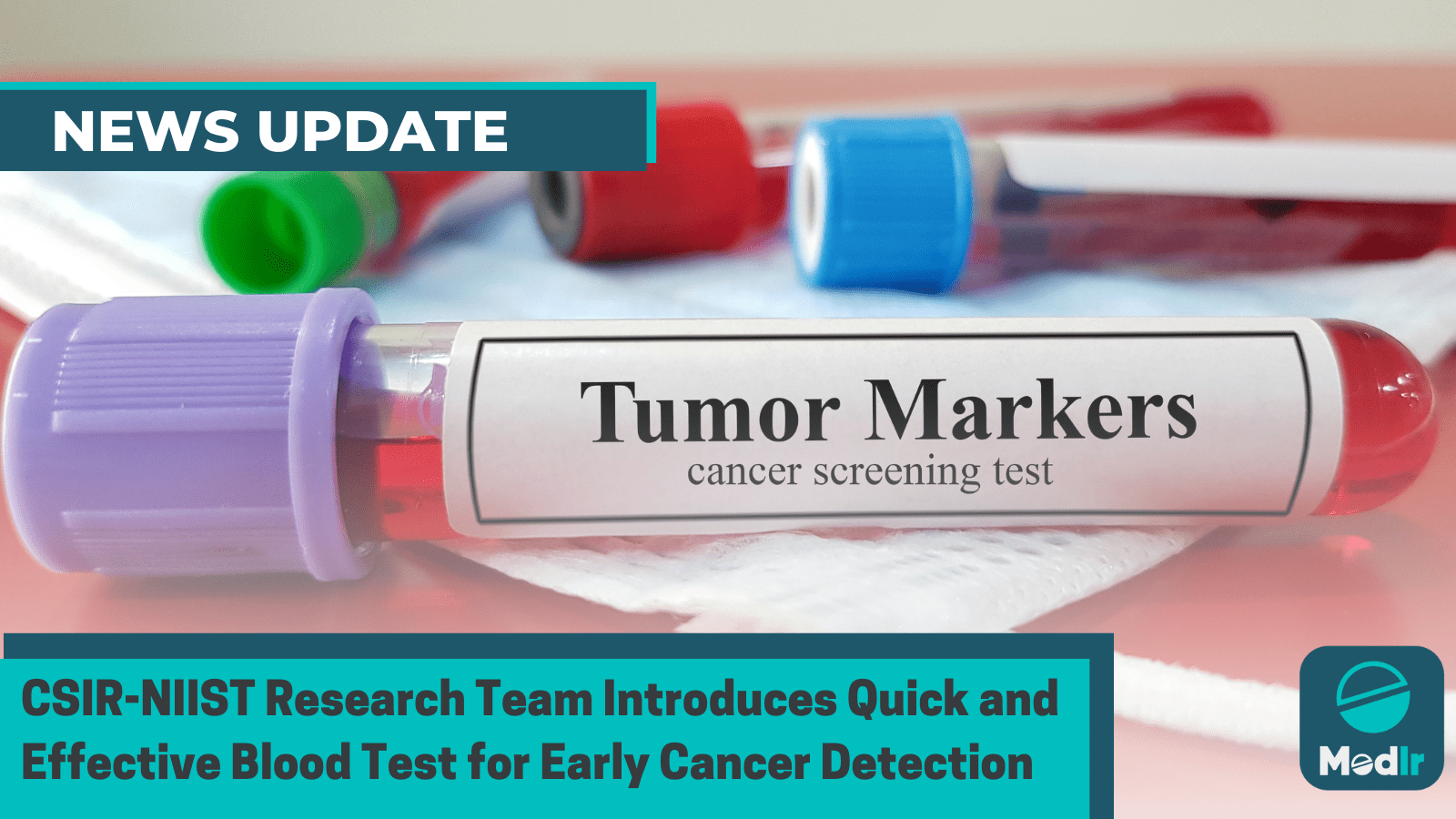CSIR-NIIST Research Team Introduces Quick and Effective Blood Test for Early Cancer Detection
Written by Shaveta Arora
Researchers at CSIR-NIIST have developed a simple blood test using AI and Raman spectroscopy to detect cancer and Alzheimer's disease. The non-invasive and affordable test provides early detection without sample preparation

A multidisciplinary team of researchers at CSIR-National Institute for Interdisciplinary Science and Technology (NIIST), Thiruvananthapuram, claims that they are very close to completing the clinical validation of a diagnostic platform. This platform will enable the early detection of many cancers and Alzheimer's disease (AD) through a simple and affordable blood test.
Ground Breaking CSIR-National Institute for Interdisciplinary Science and Technology (NIIST) Project
Dr. C. Anandharamakrishnan, the Director of CSIR-NIIST said -
“We have already completed Phase 1 of the pilot studies for the primary clinical validation of the diagnostic modality we have developed, on the platform of the highly sensitive technique of surface-enhanced Raman spectroscopy (SERS). We hope to perfect this through larger trials involving multiple clinical partners soon.”
After conducting research spanning over eight years, the team at NIIST successfully developed a SERS-based diagnostic platform and functionalized nanoparticle probes. These advancements enabled them to detect various grades of cervical cancer and the three major biomarkers for breast cancer from tissue samples. The team has already patented this technology.
Dr. Anandharamakrishnan further added -
“We wanted to take our extensive experience with Raman spectroscopy in medical diagnostics a step ahead and build a non-invasive cancer detection modality on the same platform. By integrating SERS with artificial intelligence (AI), we have now developed mathematical models, which can analyse the biomolecular Raman fingerprints reflected in blood samples and detect early metabolic changes indicative of cancer.”
Use of Raman Spectroscopy for Non-Invasive Cancer Detection
In 1928, Raman spectroscopy was invented, a powerful analytical technique that measures the scattering of laser light to provide valuable insights into the molecular composition and structure of a sample.
Over the past 10-15 years, SERS, an enhanced form of conventional Raman spectroscopy, has garnered significant interest as a potential tool for non-invasive cancer detection. It has shown promise in detecting early metabolites or cancer biomarkers in blood, also known as "liquid biopsy." According to the literature, Raman spectroscopy is particularly well-suited for analysing blood due to its high sensitivity for biomolecules, rapid analysis, lack of sample preparation, and non-destructive nature.
To aid in the non-invasive cancer detection process, plasma separated from blood samples is placed in the Raman spectrometer. The resulting spectra are then analysed for the metabolite Raman fingerprint. This fingerprint is compared to an algorithm created by AI to accurately diagnose whether the sample is malignant or benign.
AI-Based Analysis
NIIST has formed a partnership with Olusium Technologies, a start-up specialising in AI-based technologies, to refine the algorithm by reviewing several thousand spectra readings. Simultaneously, the SERS-AI analysis is being compared to conventional cytopathology/imaging studies of biological samples in order to ensure accuracy.
Routine Blood Tests
The noteworthy feature of the computer-guided SERS-based diagnostic platform developed by the NIIST team is its ability to provide early detection of cancers and AD through routine blood tests conducted on-site at hospitals and laboratories using a portable Raman spectrometer. In line with this, NIIST is currently dedicating its efforts to the development of a hand-held Raman spectrometer prototype.
With this technology, there is no requirement for sample preparation, and the test results can be obtained in less than half an hour. Additionally, the AI algorithm can be integrated into a hardware chip that can be installed in the machine for seamless operation.
Dr. Anandharamakrishnan, Director of CSIR-NIIST commented -
“The biggest advantage will indeed be that the test is non-invasive and affordable. We hope to contain the cost below ₹ 200 per test.”